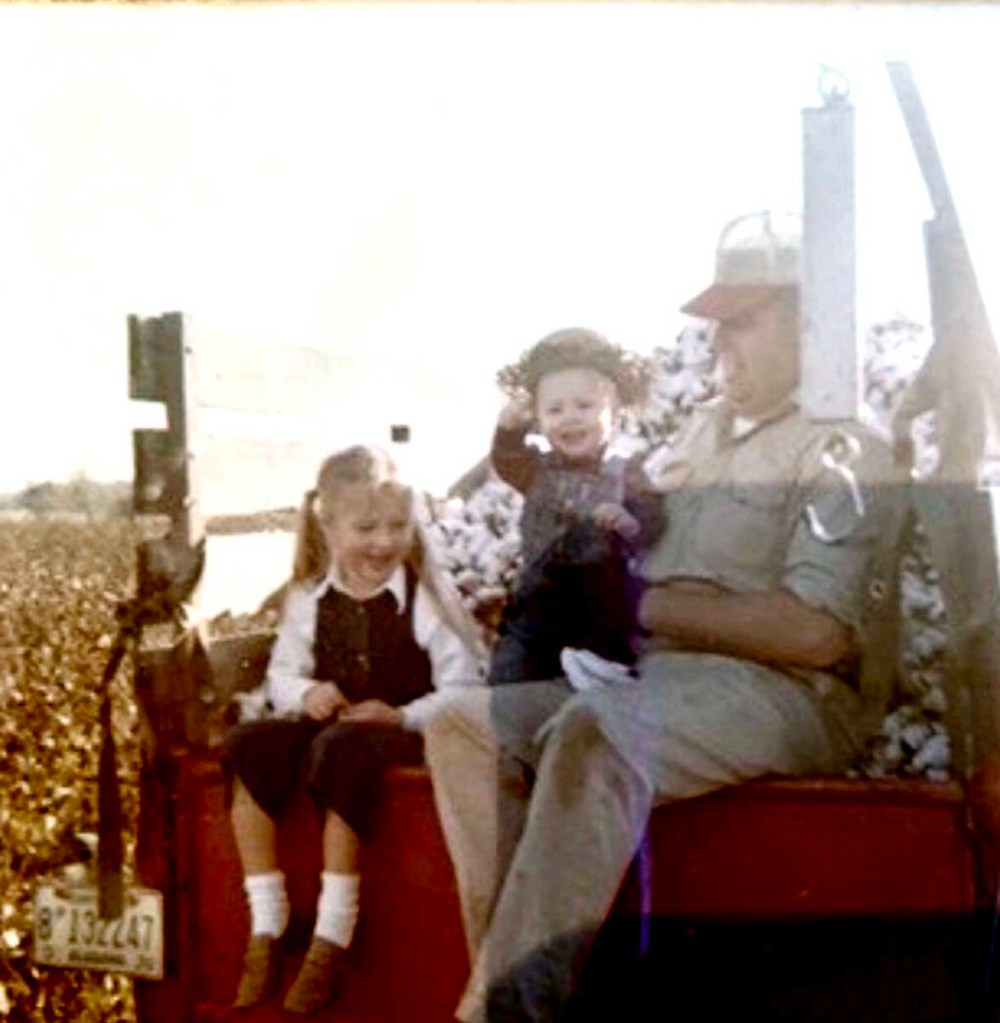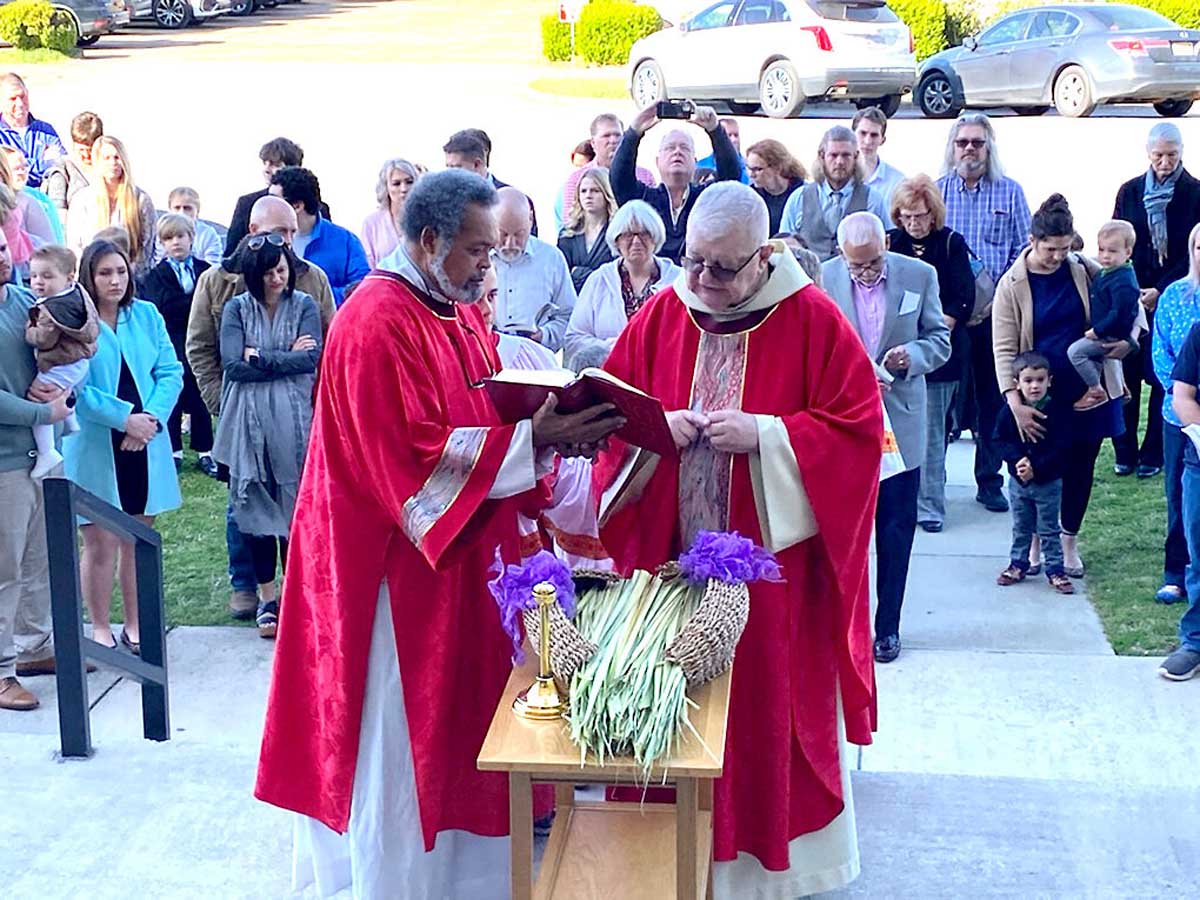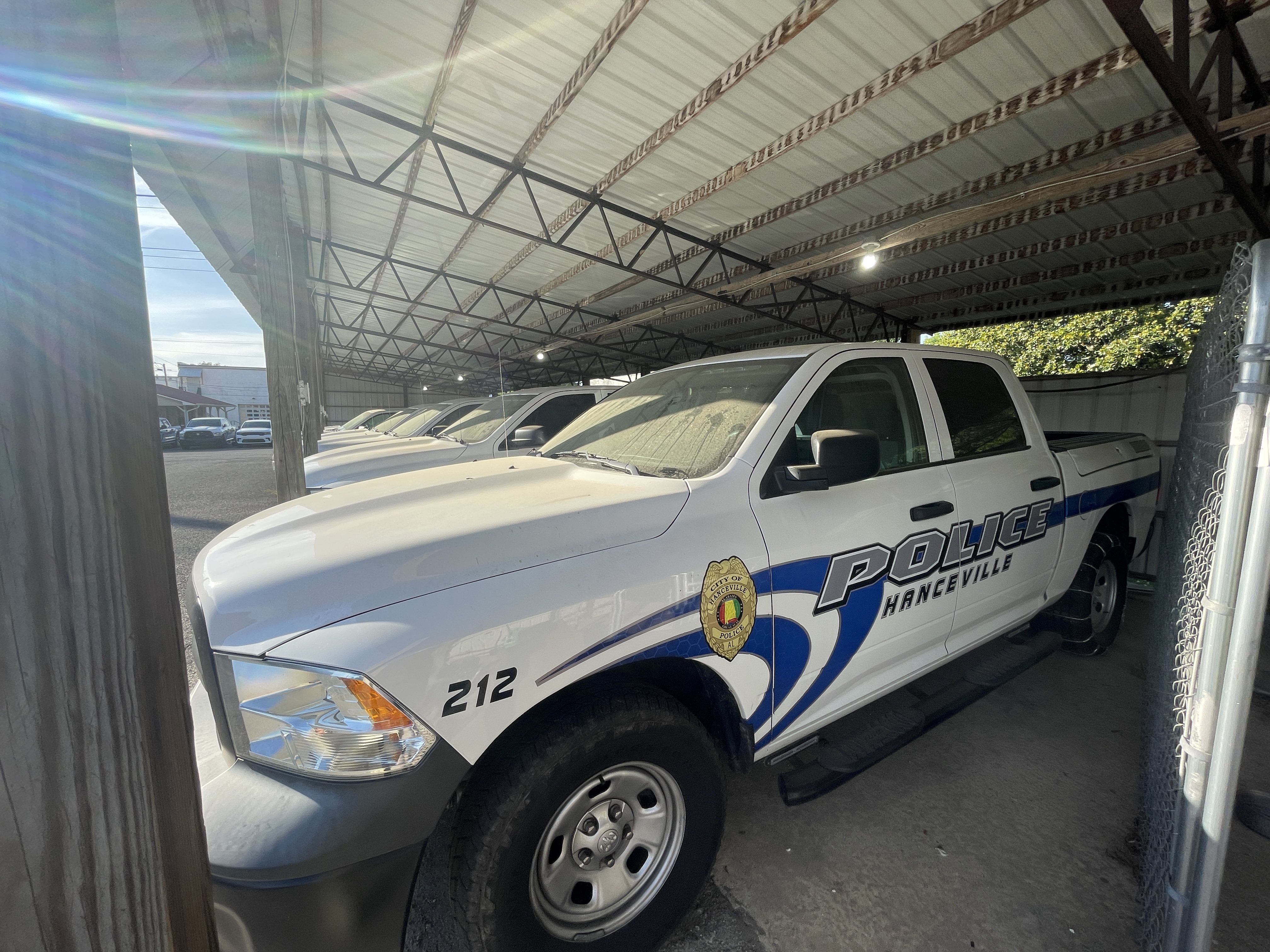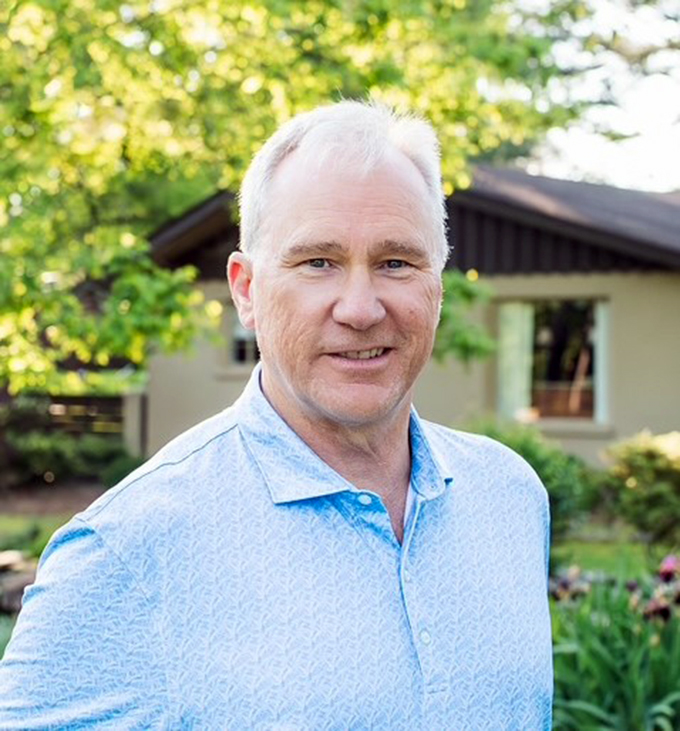‘Man of the soil’: Friends, family reflect on life of Jim Boyd — Five-term Cullman County Schools superintendent and lifelong farmer.
Published 12:15 am Saturday, November 4, 2023

- Boyd with son, Lance and daughter, Susan.
A talker, a doer, a serially curious bootstrap intellectual, and a self-professed “man of the soil,” Jim Boyd had a lifelong gift for leaving things better than he found them. Standing every inch of 6’ 3’’ — even with his signature flattop haircut — the 20-year Cullman County Schools superintendent and Fairview native was a big, gregarious man.
“When I was little, he used to carry me out at night and clear pine limbs from the road when the roads were icy,” said Lance Boyd, one of three adult Boyd children who — along with sister Susan Sellers and brother Trent — all continue to live in the east Cullman County haunts not far from where Jim and his wife Willodean raised them. “We’d stop in and see Leon Murphy at the WKUL radio station, and ol’ Leon would always say to him, ‘Come on in, Bigfoot!’ That’s what he called him: Bigfoot.”
In keeping with his industrious nature, Jim used his sizable presence — just as he used every other resource — as a way to bridge distances between people; to draw them in rather than turn them away. Whether campaigning in one of his five successful elected superintendent bids, working alongside south Alabama strangers to bring an entire distressed school system back from the brink of disaster, or rubbing elbows more recently with Cullman Festhalle visitors while dispensing advice (and home-grown produce) in his retirement, he had a disarmingly natural knack for cutting through social clutter and for forging genuinely personal connections.
“He will truly be missed — and the people in Wilcox County, they cared about him,” said Lester Turk, now the veteran board member for the south Alabama school system where Boyd was recruited in the 1990s as part of a state-mandated team tasked with reversing the system’s academic and financial fortunes.
“The things he wanted to put into place were pretty much in line with what I was trying to do, and our association became a friendship,” Turk said. “The love he had for the children was just astronomical, and he and I just bonded. We would talk about how we would help the school system, and that just turned into a marvelous friendship. You couldn’t ask for a better friend … and he did a lot for the children of Wilcox County.”
Education, of course, was in Boyd’s blood: Before he ever ran for county schools superintendent, the St. Bernard College (and later Athens State, for his master’s degree) graduate was a teacher at Fairview first. With majors in both mathematics and chemistry (“He never used a calculator,” said Lance), he began his career in the classroom before Boyd — a lifelong Democrat who attended St. Bernard on a basketball scholarship — made his first elected bid for the county central office in 1971.
As superintendent, Boyd was known for being accessible — available to students, to parents, to faculty and to staff. With his steel-trap head for numbers, he was also exceedingly thrifty.
“He had one of the best financial minds,” said Lance. “One of his slogans he’d always use was, ‘You’ve gotta live within your means.’ It’s simple, but that’s why people trusted him and elected him for five terms.
“When he retired, he left the school system with no debt and with millions in savings — and there was no bus in the entire system that was more than 10 years old. and in all that time, he never lost sight of what it was all about: He’d always say, ‘Son, every decision you make — you make it for the children.’”
Maybe that explains one of Boyd’s other hallmark traits: a directness and tenacity that cared little for implied hierarchies and could take the unsuspecting by surprise — especially if they happened to be standing between local schools and the resources they needed.
“I remember one time attending a legislative session when Jim was there,” said retired Cullman educator Doyle Bullard, a colleague of Boyd’s who spent part of his own early teaching career at Fairview. “Well, you couldn’t speak to the legislators unless you’d been put on the agenda — and they hadn’t put Jim on the agenda. So when it looked like the moment for him to address financial needs for our schools was about to pass, he wasn’t at all timid about breaking that protocol.
“Jim wasn’t going to be denied his chance to appeal to the legislature for funding that we needed to repair buildings and make improvements to facilities out in our rural areas. He just broke in and spoke up. He simply wasn’t going to leave without seizing that opportunity to be heard on behalf of the schools in rural Alabama. and you know what? He did secure a lot of funding for Cullman County Schools.”
From a career spanning more than three decades and covering both the public and private sectors (he even added consulting to his post-retirement résumé, contracting as an educational liaison with integrated design and engineering firm Goodwyn Mills Cawood), Boyd bore a hard-earned reputation as a knowledgable advocate for local education. Beneath his accessible, home-spun demeanor, he was a keen strategic thinker who understood complex systems — as well as the lengthy time preference required to make them succeed.
Combined with his optimism and unflagging work ethic, those traits made Boyd a natural fit for what may prove to be one of his most enduring local legacies: helping to found and delineate the mission of the Cullman-headquartered North Alabama Agriplex.
“He was one of the real originators and ‘instigators,’ you might say, behind the Agriplex in the beginning,” said current Agriplex director Rachel Dawsey. “He had a dream for what it could be. He had a background in education and in farming, and those both were backbone concepts in the Agriplex’s founding. Jim also had a background working with the state, and out of that came a lot of good information about setting up the Agriplex.”
“He’s just a real hero of mine. His connection with education was instrumental, because to have his understanding of outreach and partnerships at all different levels — it made such a difference,” said Cullman veterinarian and founding Agriplex board member Dr. Tom Williamson, part of the local team who first envisioned the state nonprofit, back in the late 1990s, as a showcase for agricultural education. “The educational factor is what would make the Agriplex last, and be a gift to the community and to the state — educating people about how important agriculture was, has been, and will continue to be.
“Jim sacrificed so much for the school system and things related to the community,” said Williamson. “Honesty and integrity and hard work: doing things for the right reasons to try to make our community and our state better. He was supportive of [founding college president] Jake Bailey when Wallace State was getting started. No matter what it was, he was just tireless in his efforts to make our community better.”
Boyd passed away on Oct. 27 at the age of 85, leaving behind a rich legacy that transcended his local roots, spanned social barriers and stretched across a broad array of interests and areas of expertise. The son of a farming family who traveled to the area around 1910 from Villa Rica, Ga., and put down permanent roots at Fairview, he grew up working the land — and no matter how far from the land his career tried to carry him, it’s where he unfailingly returned to invest his abundant productive energies and reap, in recompense, the lessons of the soil.
“Even though he was superintendent, he always considered himself a ‘man of the soil,’” said Lance. “At the foot of his grave, we’re going to have that: ‘Man of the soil.’ He farmed all his life — he called it ‘truck farming’ — just getting in a truck and putting your produce out.
“In the early days, we’d even go house to house in Huntsville and other places, knocking on doors and selling produce. He was teaching us how he did it with his daddy, and he did it all his life — when he was in college, when he started teaching at Fairview, when he got his master’s [degree] at Athens. There was never had a time when he didn’t grow stuff and peddle it at one scale or another.”
Rural pursuits gave Boyd a vehicle to pass on lessons to his children and to share his ideas with friends. Never one to bypass a conversation with strangers and acquaintances alike, Jim regarded getting to know people as part of his identity — and with a career spent in local politics, he brought the same dawn-to-dusk work ethic to cultivating relationships as he did to cultivating the land.
“Even after he left Wilcox and released the school system back to the board, Jim would come back and visit me; intentionally came and visited me in my home, at the central office, and at the school,” said Turk, who made the recent trip to Cullman to attend Boyd’s funeral. “And when he visited, he’d bring me things from off his farm.
“We talked a lot,” Turks said. “We’d talk on the phone. We would talk on the phone so long, I’d say, ‘Mr. Boyd, we’re starting to act like women — we’ve been on the phone for two hours.’ That was just the way he was. What started out as a working relationship for me — it turned into one of the best friendships I’ve ever had in my life.”
“He was my best friend,” said Lance. “I went everywhere with daddy. He was my encourager. He was an avid quail hunter, and we’d go bird hunting together. It would just give us that time to talk — to just sit down and talk and be together. He always wanted all of his children to be broad-minded. He always encouraged us to play sports, and he was so proud that all three of us kids were student council presidents.”
It’s fair to say the Cullman community came to appreciate Boyd’s contribution to its late 20th-Century growth even during his own lifetime. Despite being all the way across the county from his Fairview home, the gymnasium at West Point High School bears his name today. So, too, does the school library at Hanceville.
“Jim certainly has been an incredible friend,” reflects Williamson. “Our time together is precious to me. I wouldn’t take anything for the gift I’ve had in my life, to have spent the time that I did with him. When he was in office as superintendent, he’d start at 5 a.m. and go until way past dark. His work ethic and his family values were as good an example for our community as anybody could ask for — this is his contribution.”
“I remember,” said Lance, “after daddy would spend the day going door to door campaigning and talking with people, he’d come in late at night. I could hear him in there in the kitchen.
“Mama is a wonderful cook, and she’d leave stuff out on the stove for him to come home and eat. So from the other room, I’d hear daddy in there with the spoon, rattling around in those pans and eating the leftovers — and … he was still talking.”





